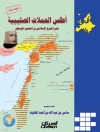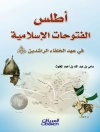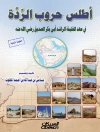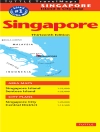This beatutiful book is a lavishly illustrated look at the most important atlases in history and the cartographers who made them.
Atlases are
books that changed the course of history. Pored over by rulers, explorers, and adventures these books were used to
build empires, wage wars, encourage diplomacy, and
nurture trade.
Written by Philip Parker, an authority on the history of maps, this book
brings these fascinating artefacts to life , offering a unique,
lavishly illustrated guide t o the history of these incredible books and the cartographers behind them.
All key cartographic works from the last half-millennium are covered, including:
- The Theatrum Orbis Terrarum, considered the world’s first atlas and produced in 1570 by the Dutch, geographer Abraham Ortelius,
- The 17th-century Klencke — one of the world’s largest books that requires 6 people to carry it,
- The Rand Mc Nally Atlas of 1881, still in print today and a book that turned its makers, William H Rand and Andrew Mc Nally into cartographic royalty.
beautiful book will
engross readers with its detailed, visually stunning illustrations and
fascinating story of how map-making has developed throughout human history.
Tabella dei contenuti
INTRODUCTION
1. THE PREHISTORY OF THE ATLAS
(to c. 1200)
2. THE WORLD EXPANDS: THE EARLIEST ATLASES
(c. 1200–1492)
3. NEW HORIZONS
(1500–1550)
4. THE GOLDEN AGE OF THE ATLAS
(1550–1600)
5. THE ATLAS DIVERSIFIES
(1600–1700)
6. MAPPING THE NATION
(1700–1800)
7. THE HEYDAY OF IMPERIAL MAPPING
(1800–1900)
8. THE ATLAS AND WAR
(1900–1950)
9. AN ATLAS OF SOCIETY
(1950–2000)
10. AN ATLAS BY ANY OTHER NAME
(2000–)
Circa l’autore
Philip Parker is a writer, consultant and publisher specializing in ancient and medieval political and military systems. He studied history at Trinity Hall, Cambridge, and is the author of A History of Britain in Maps (2016), the DK Eyewitness Companion Guide to World History (2010) and many more.












